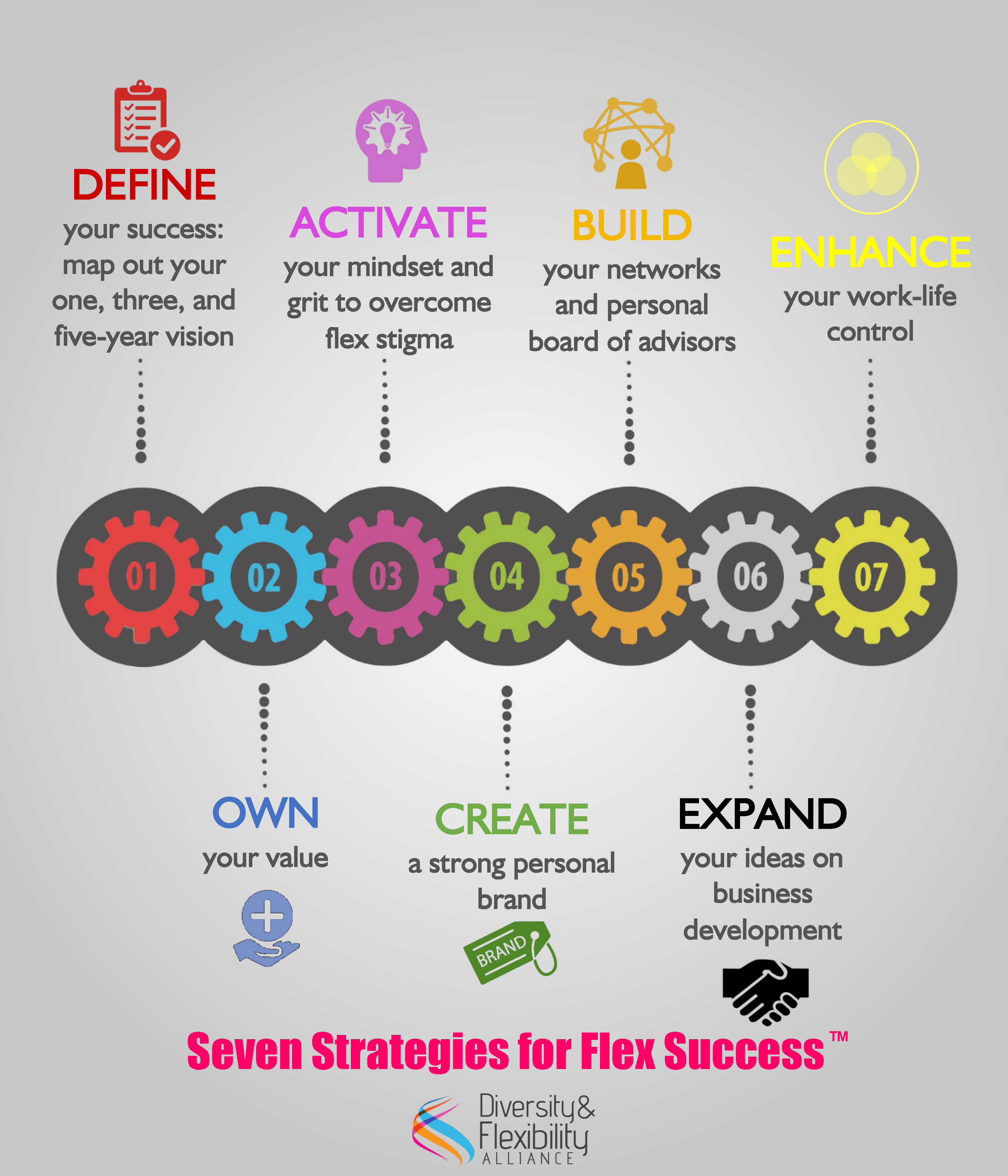The Third Step to Ensuring Your Flex Success™ – Activate Your Mindset and Grit to Overcome Flex Stigma
This is the third in a series of seven blog posts featuring advice on our Seven Strategies for Flex Success™. Check back as we walk you through the seven steps that will guarantee your success while working flexibly: Define Your Success; Own Your Value; Activate Your Mindset; Create A Strong Personal Brand; Build Your Networks; Expand Your Ideas on Business Development; and Enhance Your Work-Life Control.
 We’re not going to lie to you. It’s not always going to be easy to transition from being in the office full-time to a flexible work schedule. While many industries have come a long way in understanding the value flexible work policies provide, biases still exist. No matter where you work, you may come across co-workers who think you’re less committed to the job because you work reduced hours. You may also be faced with supervisors who question your time at home and whether you are actually working when you’re not physically in the office.
We’re not going to lie to you. It’s not always going to be easy to transition from being in the office full-time to a flexible work schedule. While many industries have come a long way in understanding the value flexible work policies provide, biases still exist. No matter where you work, you may come across co-workers who think you’re less committed to the job because you work reduced hours. You may also be faced with supervisors who question your time at home and whether you are actually working when you’re not physically in the office.
It’s best to be prepared for these obstacles, and when they do arise, it’s important to maintain your confidence and harness your grit. You know you are meeting the needs and deadlines of your team and clients. You know you are following your company’s flexible work policy guidelines as well as your own personal flex plan. And, you know the quality of your work has not diminished at all (in fact it may have improved.)
Most of these hurdles and biases should be temporary bumps in the road. Activate your “big-picture,” growth mindset and remind yourself that working flexibly is actually better for you and your organization because it’s helping ensure a longer, more steadfast relationship.
“My skills and work ethic didn’t change even if my schedule did.”
Do not be persuaded to overcommit on projects trying to prove you’re a dedicated employee. As one law firm partner working flex noted, ”I knew there was a stigma to working flex so I over-compensated by taking on too much. Looking back, I would have had better communication with my colleagues and not been so hard on myself. I know my skills and work ethic didn’t change even if my schedule did.”
Don’t feel guilty.
The key is to remember that flexible work policies are implemented, just like any other business initiative, because they are beneficial to the bottom line. Whether it’s a temporary or permanent adjustment to your schedule, working flexibly allows you to remain at your job while also filling other voids in your life. It’s a positive solution to a common business challenge, and you should not feel guilty. One law firm partner told us, “If you decide to work flexibly, and that’s what works for you and your client, then there’s nothing to apologize for.”
If all else fails be blunt!
Even if you face your new schedule with confidence and grit, you may still deal with unconscious and conscious bias towards working flexibly. As another law firm partner told us, “When an attorney commented about me leaving at 5:30, I told him he could take his wallet out and leave 20% of his salary on the table, then he could leave too!”
Contact us for more information about our Seven Strategies for Flex Success™.





